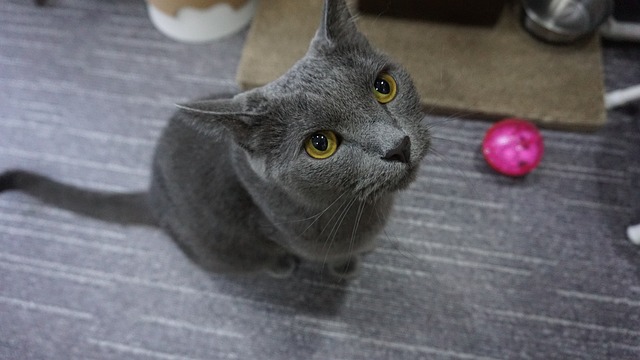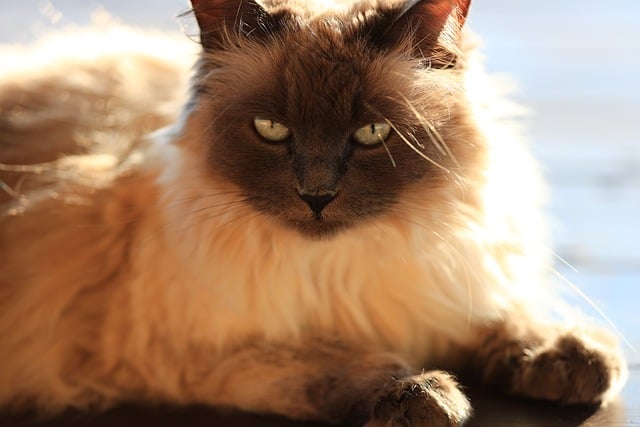Understanding Cat Allergies and Hypoallergenic Traits
Allergies to cats are triggered by proteins found in their saliva, dander, and urine. When these proteins dry up, they become airborne and can provoke allergic reactions. Hypoallergenic cat breeds are those with characteristics that tend to produce fewer allergens than others. Contrary to popular belief, no cat breed is completely allergen-free, but some produce less Fel d 1 protein, the primary allergen found in cats. Notably, organizations such as the American Kennel Club and various feline clubs recognize that breeds like the Siberian cat and the Balinese produce lower levels of this allergen. Additionally, certain physiological features such as coat type can also influence allergen production. For instance, cats with less or no hair, like the Sphynx, leave fewer allergens around the home due to their lack of fur
Top Hypoallergenic Cat Breeds to Consider
- Siberian: Despite its long, luxurious coat, the Siberian cat has a lower-than-average enzyme level in its saliva, translating to fewer allergens. This breed is known for its playful temperament and hearty constitution
- Balinese: Often mistaken for a Siamese with a longer coat, the Balinese produces significantly less Fel d 1 protein. This breed combines striking looks with a friendly personality, making it a great companion animal
- Oriental Shorthair: Boasting a wide variety of colors and patterns, the Oriental Shorthair has a short, fine coat that sheds minimally. Their social nature makes them an excellent pet for families
- Russian Blue: With a dense, plush coat that sheds very little, the Russian Blue is another favorite among allergy sufferers. Its coat not only reduces allergen spread but also requires minimal grooming
Practical Tips for Living Comfortably with Hypoallergenic Cats
Living with a hypoallergenic cat still requires managing the environment to minimize allergy symptoms. Regular grooming and bathing of your cat can help reduce the presence of allergens. It’s advisable to use pet-friendly shampoos and to groom the cat in a well-ventilated area or outdoors. Air purifiers can also play a critical role in reducing airborne allergens. Look for purifiers with HEPA filters, recommended by allergists for their efficiency in trapping pet dander, pollen, and other allergens. Additionally, frequent cleaning of bedding, carpets, and furniture is essential. Washable furnishings or those designed for pet owners, available through retailers like Ikea and Wayfair, can make maintaining a clean home easier
Choosing the Right Breed
When selecting a hypoallergenic cat, consider more than just allergen levels. Each breed has a unique personality and care needs. For instance, the playful and energetic nature of a Balinese might suit active families, while the calm and reserved demeanor of a Russian Blue could be perfect for quieter homes
Adjusting Home Environments
Modifying your home environment can drastically reduce allergy symptoms. Opt for hard flooring over carpet and use washable curtains and blinds. Keep your cat’s favorite areas clean, and establish a pet-free zone, such as the bedroom, to ensure you have a space that is allergen-free
Maintaining Cat Health and Hygiene
Regular vet check-ups are vital to ensure your cat is healthy and not contributing excessively to allergen levels in the home. A healthy diet, rich in omega fatty acids, can improve skin health and reduce dander.
Engaging with Cat Allergy Communities and Resources
For those navigating the complexities of cat allergies, engaging with communities and resources can be incredibly beneficial. Online forums and local pet groups provide platforms for sharing experiences and tips on managing allergies. Websites like PetMD, The Spruce Pets, and even specific breed clubs offer extensive information on hypoallergenic cats and general pet care practices. Events and webinars organized by groups such as the Cat Fanciers’ Association or local humane societies also present opportunities to learn more about hypoallergenic breeds and connect with breeders and experts. These resources can help allergy sufferers make informed decisions and find support, enhancing their ability to enjoy a fulfilling life with their feline companions.




